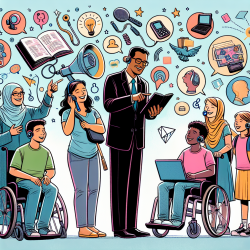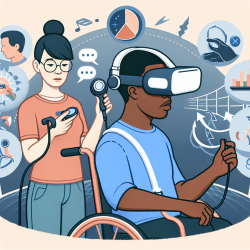Recent advancements in telehealth have provided new avenues for delivering interventions to children with Autism Spectrum Disorder (ASD), particularly those living in remote areas. A systematic review published in the Journal of Medical Internet Research, titled "Parent-Mediated Intervention Training Delivered Remotely for Children With Autism Spectrum Disorder Living Outside of Urban Areas: Systematic Review," offers valuable insights into the effectiveness of these interventions.
The review analyzed seven studies that focused on parent-mediated intervention training delivered remotely. These studies encompassed various methodologies, including self-guided websites, videoconferencing, and training videos. The findings suggest significant improvements in parent knowledge, intervention fidelity, and children's social behavior and communication skills.
Key Findings
- Parent Knowledge: Four out of seven studies reported significant improvements in parent knowledge post-intervention.
- Intervention Fidelity: Six studies demonstrated improvements in parent intervention fidelity, indicating that parents were able to implement the training effectively.
- Child Outcomes: Three studies reported significant improvements in children's social behavior and communication skills.
Challenges and Limitations
Despite the promising results, the review identified several challenges. The studies had small sample sizes and a high risk of bias, primarily due to the lack of control groups and standardized outcome measures. Additionally, defining the geographical locality of participants was difficult, limiting the generalizability of the findings.
Implications for Practitioners
For practitioners, these findings underscore the potential benefits of incorporating remote parent-mediated interventions into their practice, especially for families in remote areas. Here are some actionable steps:
- Utilize Technology: Incorporate telehealth platforms and self-guided online modules to deliver training to parents.
- Regular Monitoring: Schedule regular videoconferencing sessions to provide ongoing support and ensure intervention fidelity.
- Standardized Measures: Employ standardized outcome measures to evaluate the effectiveness of interventions.
Future Research Directions
The review calls for more rigorous research to validate these preliminary findings. Future studies should focus on:
- Conducting randomized controlled trials (RCTs) to control for bias.
- Using standardized outcome measures to enhance comparability.
- Investigating the factors influencing parent engagement in remote interventions.
By addressing these areas, researchers can provide more robust evidence to guide clinical practice and improve outcomes for children with ASD.
To read the original research paper, please follow this link: Parent-Mediated Intervention Training Delivered Remotely for Children With Autism Spectrum Disorder Living Outside of Urban Areas: Systematic Review.










